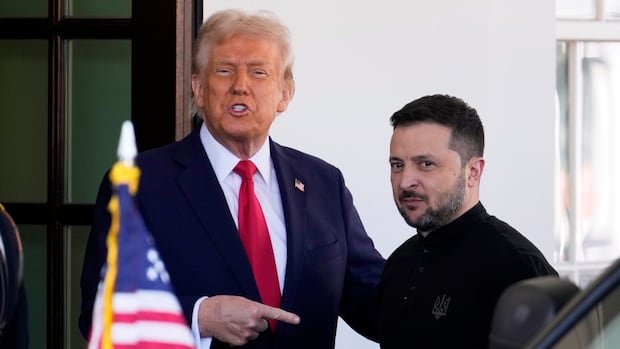European and NATO officials disclosed on Sunday their intention to accompany Ukrainian President Volodymyr Zelenskyy to Washington for talks with U.S. President Donald Trump on resolving Russia’s conflict in Ukraine. The meeting may include discussions on potential security commitments from the U.S. European heavyweights such as France, Britain, and Germany have expressed support for Zelenskyy post his exclusion from Trump’s recent meeting with Russian President Vladimir Putin in Alaska. The leaders aim to prevent a repetition of the tense encounter Zelenskyy had with Trump in February and demonstrate unwavering support for him. Steve Witkoff, the U.S. special envoy, mentioned that Putin has agreed to consider offering Ukraine a security assurance akin to NATO’s collective defense principle to potentially end the 3 1/2-year war. European Commission President Ursula von der Leyen commended Trump’s readiness to contribute to security guarantees similar to Article 5 for Ukraine, with the coalition of willing countries, including the EU and Canada, prepared to play their part.
French President Emmanuel Macron, British Prime Minister Keir Starmer, German Chancellor Friedrich Merz, Finnish President Alexander Stubb, and NATO Secretary-General Mark Rutte have confirmed their attendance at the White House talks. Their participation aims to address concerns in Kyiv and other European capitals regarding Ukraine’s involvement in peace negotiations brokered by Trump. Neil Melvin from the Royal United Services Institute noted that European leaders are actively shaping the evolving agenda, moving away from ceasefire discussions to focus on preventing Ukraine’s integration into NATO or the EU, as per Putin’s objectives. While a ceasefire remains a possibility, Rubio emphasized the importance of a comprehensive peace agreement to resolve the conflict. Zelenskyy insists on the vital role of the U.S. and Europe in the negotiations, highlighting the need for security guarantees and military support. However, he opposed Trump and Putin’s call for immediate peace talks, stressing the necessity of a ceasefire to evaluate Putin’s demands without the pressure of ongoing hostilities.

